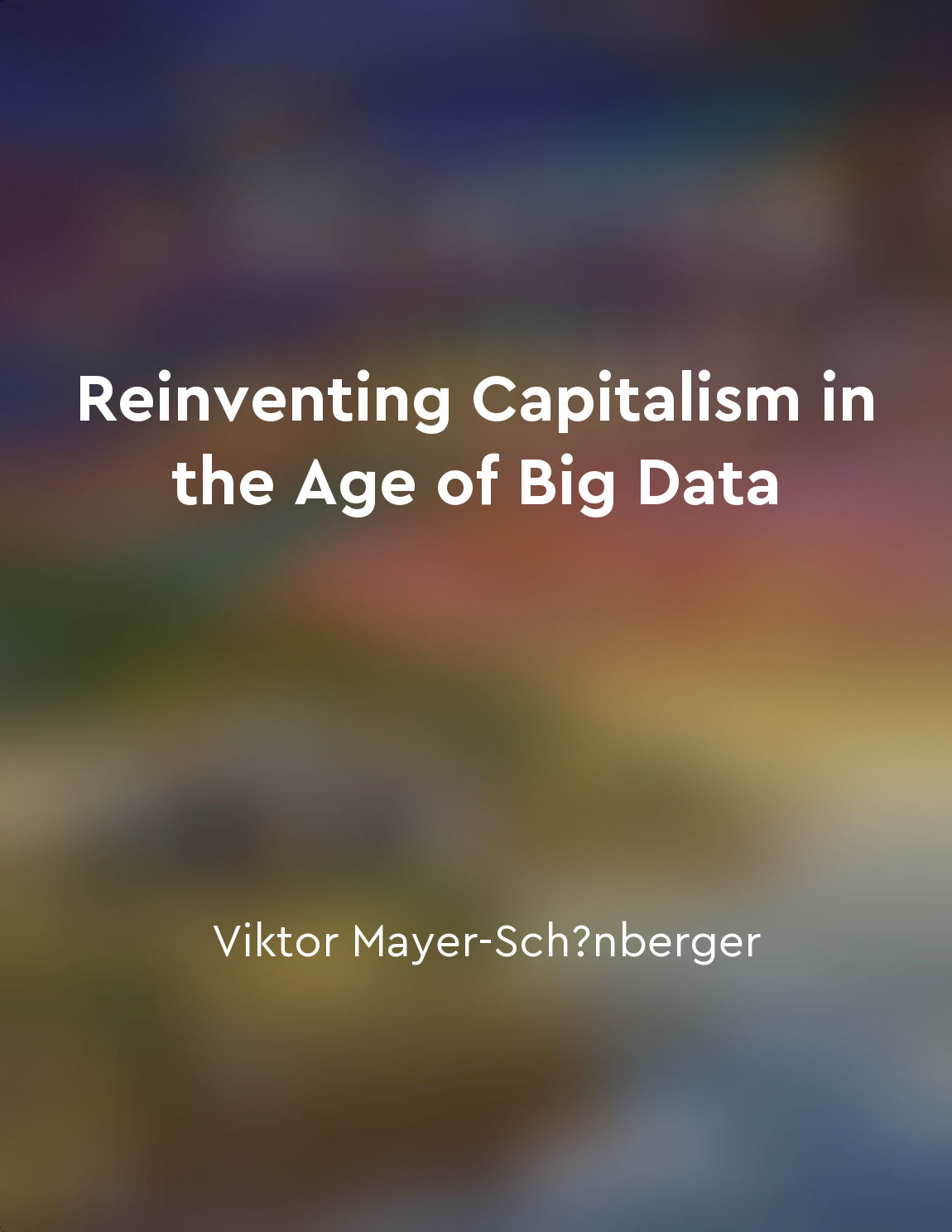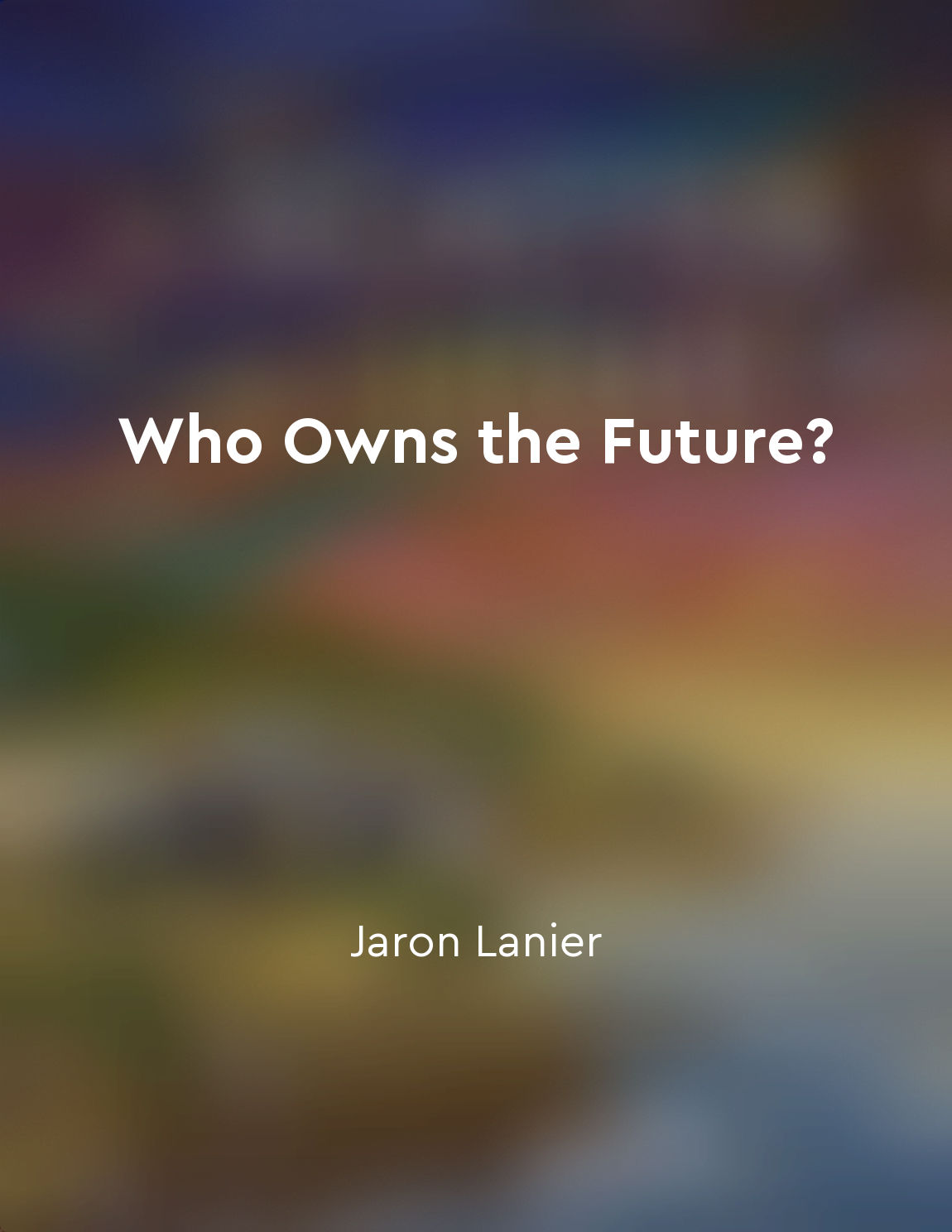Without fair compensation, people will be left behind in the digital age from "summary" of Who Owns the Future? by Jaron Lanier
Fair compensation is crucial in the digital age because it determines who benefits and who gets left behind in the constantly evolving landscape of technology. When people are not properly compensated for their contributions to the digital economy, they are essentially being exploited for their labor and creativity. This ultimately leads to a concentration of wealth and power in the hands of a few, while the majority struggle to make ends meet. In the traditional economy, labor was compensated fairly through wages and benefits. However, in the digital economy, the value of individual contributions is often overlooked or undervalued. This creates a system where a small group of companies profit immensely from the collective data and content generated by millions of users, without adequately compensating them for their contributions. This imbalance in compensation has far-reaching consequences for society as a whole. It not only exacerbates income inequality but...Similar Posts

Companies must use data creatively to gain a competitive edge
To compete in today's fast-paced business environment, companies need to leverage data in innovative ways. Simply collecting an...

Dangers of societal polarization
Societal polarization poses a grave danger to the fabric of our society. As the divisions between different classes and groups ...

The rise of automation threatens millions of jobs in various industries
The march of automation through the economy is relentless. Every year, more tasks that used to require human labor are being ta...
Digital platforms are reshaping industries
The pervasive influence of digital platforms is fundamentally transforming industries across the globe. These platforms have be...

Climate change poses significant challenges to future generations
The world we inhabit today is facing a grave threat that has the potential to impact generations to come. Climate change, a phe...

Data should not be centralized in the hands of a few powerful corporations
A central idea in 'Who Owns the Future?' is the danger of allowing data to be controlled by a small number of powerful corporat...
